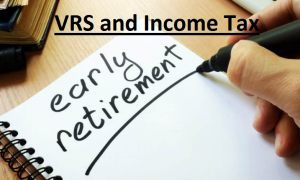Pension is a kind of retirement benefit that is provided to the retired employees of an organization as compensation for past employment with that organization. It is paid over a regular, fixed period of time and in form of an annuity calculated as per the terms of the pension plan.
The pension received by an employee from his former employer is taxable under the head salaries. Tax is deductible under section 192 of the income tax act on payment. However, the family pension received by the members of the family of an employee subsequent to his death is taxable under the head “income from other sources”.
Under this blog we will discuss the following points related to pension:
- Type of Pension Plans
- Eligibility for pension/ family pension.
- Document to be filled for family pension in case of death
- Un-commuted pension
- Commuted pension
- Tax Treatment of Pension
- Pension received by a family member
- Deduction in respect of contribution to certain pension funds (Section 80CCC)
- Deduction in respect of contribution to pension scheme of Central Government or any other employee (section 80CCD).
- Point to be remember related to Pension
Types of pension plan
There are two most common types of pension plan which are
Defined-benefit Plan: As the name represents, a defined sum of amount is paid after the retirement of the employee which is calculated by formula when the employee becomes a pension member. Defined-benefit plans can be funded or unfunded. Funded means employer contributes to a pension fund for paying pension to its employees. Unfunded means the benefits are paid for by the employer by himself at the time of retirement.
Defined-contribution Plan: Under this plan, the contribution is made by the employee from his salary or by the employer into a pension fund. This pension fund works as an investment fund. At the time of retirement, the pension will be paid out from this fund’s return. Unlike to defined benefit plan, the annuity is not fixed and guaranteed. It may vary as per the performance of the pension plan.
Eligibility for pension/ family pension:
After becoming a member of a pension plan, the following are eligible for the pension:
- Employee himself
- His/her spouse after his death
- His/her children below 25 years of age, unmarried daughter, after his death.
Note: Divorced wife is not entitled to the award of family pension as she loses the status of a legally wedded wife. However, the legitimate child/children from a divorced wife shall be entitled to the share of family pension which the mother would have received at the time of death of her husband had she not been divorced.
Document to be filled for family pension in case of death
- Certificate of income, required to be submitted by a claimant member of the family (other than spouse) along with application form (Form 14)
- Death certificate after the death of a pensioner/family pensioner.
- For more information the O.M. No. 1/16/2011-P&PW(E) dated 20.9.2012 regarding- Family pension issued by Department of Personnel, P.G. & Pensions(DOPPW), Government of India, New Delhi can be referred.
- For detail of other forms please refer to website – www.pensionersportal.gov.in/forms/Applicationforms/mapplication.asp
Types of pension:
Pension is classified into two types: uncommuted pension and commuted pension.
a) Uncommuted pension:-
Under uncommuted pension, employees choose to receive a fixed amount of pension on monthly basis.
b) Commuted pension:-
Under this method, the employee received a lump sum amount as an advance of his total pension. That means he surrender a portion of his pension say 30% and receives an advance amount this is called commuted pension. The pension may be fully or partly commuted.
Tax Treatment of Pension
The pension is taxable under the head of “Salary” in the hands of the receiver and in the year of receipt. The taxability depends on the type of the pension as under:-
| Uncommuted pension i.e. periodical pension | It is fully taxable in the hands of all employees, whether government or non-government. |
| Commuted Pension | a) Government employee or employee of local authorities or statutory corporation: Fully Exempted [section 10(10a)(i)]
b) Non-Government Employee Any commuted pension received is partially exempt from tax in the following manner: If the employee is in receipt of gratuity Exemption = 1/3 X (100% of Commuted Pension*) *if the employee has commuted the whole of the pension. If the employee does not receive a gratuity Exemption = 1/2 X (100% of Commuted Pension*) *if the employee has commuted the whole of the pension. Caution: Exemption shall be allowed to the extent it is allowed to be commuted and the balance uncommuted Pension received periodically will be fully taxable. |
Example:- Mr. Ram is drawing a salary of Rs. 10000 p.m., retires from service and becomes entitled to receive a pension of Rs 6000 p.m. He gets half his pension commuted and receives Rs. 100000 as lump sum payment. Henceforth, he shall be entitled to a pension of Rs. 3000 p.m. (If Ram commute his full pension then he will receive Rs 2,00,000)
Taxability:-
- Uncommuted Pension of Rs 3000 P.M is fully taxable.
- Commuted Pension of Rs 100000
If Ram is a Government Employee: Rs 100000 is fully exempted.
If Ram is a non-Government Employee and also receiving Gratuity:
Exempted pension will be = Rs 66667 (1/3 X 200000) and the taxable amount will be Rs 33333/-
If Ram is a non-Government Employee and not receiving Gratuity:
Then Exempted pension will be = Rs 100000 (1/2 X 200000) and the taxable amount will be Rs Nil.
Pension received by a family member
Pension received by a family member is taxed under the head “income from other sources” in the family member’s income tax return.
- If this pension is commuted or is a lump sum payment, it is not taxable.
- uncommuted pension received by a family member is exempt to a certain extent. Rs. 15,000 or 1/3rd of the uncommuted pension received – whichever is less is exempt from tax.
For example – If a family member receives a pension of Rs 1,00,000, the exemption available is least of – Rs 15,000 or Rs 33,333 (1/3rd of Rs 1,00,000). Thus the taxable family pension will beRs.85,000 (Rs 1,00,000 – Rs 15,000)
Deduction in respect of contribution to certain pension funds (Section 80CCC)
- Permissible to individuals only
- Allowed in respect of any amount paid or deposited in the previous year
- Amount of deduction; the whole of the amount paid or deposit or 1,00,000 whichever is lower.
Deduction in respect of contribution to pension scheme of Central Government or any other employee (section 80CCD)
- Permissible to an individual (self-employed), employed by the central government or by any other employer
- The amount does not exceed 10% of the salary of P.Y. paid or deposit by the employee in his account under the notified pension scheme.
- Any amount contributed by any other assessee being an individual(self-employed) to such pension scheme not exceeding 10% of his gross total income in the P.Y.
- Any amount contributes by the employer (i.e. central government or any other employer) to such pension scheme not exceeding 10% of the salary of the employee.
Points to be remembered;-
- Senior citizens are exempted from filing income tax returns if pension income and interest income are their only annual income source. Section 194P has been newly inserted to enforce the banks to deduct tax on senior citizens more than 75 years of age who have a pension and interest income from the bank.
- Judges of the Supreme Court or High Court will be entitled to exemption of the commuted portion not exceeding ½ of the pension.
- Any commuted pension received by an individual out of annuity plan of the life insurance corporation of India (LIC) from a fund setup by that corporation will be exempt
- TDS is not deductible on family pension received by the dependence of the employee as it is not covered under section 192 of the Income tax act and instead been covered as Income from Other Sources.
- Exemption under section 10 (18) if any income by way of pension / family pension shall be exempt if such individual has been in the service of central government/ state government and has been awarded Paramvir Chakra or Mahavir Chakra, or Vir Chakra or such other Gallantry awards as may be notified.
- Exemption of family pension received by the family members of armed forces (including paramilitary forces) personnel killed in action in certain circumstances 10 (19).




Leave a comment